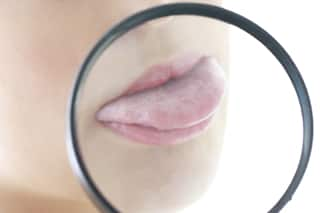-
-

TEETH WHITENING
What Is Stannous Fluoride Toothpaste?Stannous fluoride toothpaste helps prevent cavities, reduce sensitivity, fight plaque, and support daily gum and enamel health.

Selecting Dental Products
Best Toothpaste in India: Five Dentist-Recommended TypesToothpastes today are formulated to meet your every dental need and come in many flavours. Have your dental professional suggest the best toothpaste in India.
-
Science & Innovation
- ORAL HEALTH CHECK
- PRODUCT MATCH
- Colgate® | Toothpaste, Toothbrushes & Oral Care Resources
- Oral Health
- Bad Breath
- Is Your Toungue Making Breath Stale?


It takes up a sizeable portion of our mouth, and we can feel when it becomes fuzzy and unhygienic, yet many of us ignore the tongue when it comes to our oral hygiene routine. It’s time to stop the tongue from feeling like the odd man out, and keep it fuzz-less and happy.

Health
Newsflash: your tongue is teeming with germs. It’s not surprising, considering how often we eat, and the fact that many people neglect to clean this area when brushing their teeth. What’s more, 80% of the germs in our mouths aren’t on our teeth—they lies on our cheeks, gums, and of course, tongue, which is prime real estate for the growth of germs.
Add the fact that the tongue is a bit of a food-magnet, and you’ve got a recipe for germs heaven. Think of it as a large rug with millions of Velcro-like hooks, each of which snag particles of food debris. These then decompose and attract germs, which cause bad breath.
Embarrassment
An unclean tongue can sometimes become discolored, blooming an unpleasant white, or even black. Do you want to add an unsightly, colorful mouth to already-existing bad breath? Luckily, there are easy solutions:
Tips
A moist mouth is a clean mouth. Lack of fluids can cause bad breath, so rinsing your mouth with daily use anti-germs mouthwash will help keep it fresh .
Tongue scrapers are easy to use, cheap, and found at almost any pharmacy or dentist. Simply run the cleaner or scraper over the surface of your tongue to slough off germs.
You can also try the Colgate 360 º® toothbrush. It’s designed to clean not only your teeth, but also clean your tongue, cheeks and gums by rooting out all the sneaky germs that lurk in your mouth. Simply flip the toothbrush over and clean with the cheek and tongue cleaner.
DID YOU KNOW?
Each person’s tongue shape and map of taste buds is distinctive and matchless, making them as unique as a human fingerprint.
This article is intended to promote understanding of and knowledge about general oral health topics. It is not intended to be a substitute for professional advice, diagnosis or treatment. Always seek the advice of your dentist or other qualified healthcare provider with any questions you may have regarding a medical condition or treatment.
ORAL HEALTH QUIZ
What's behind your smile?
Take our Oral Health assessment to get the most from your oral care routine
2.3 billion
people worldwide suffer from tooth decay
ORAL HEALTH QUIZ
What's behind your smile?
Take our Oral Health assessment to get the most from your oral care routine
2.3 billion
people worldwide suffer from tooth decay
Related Products

Helping dental professionals
More professionals across the world trust Colgate. Find resources, products, and information to give your patients a healthier future










